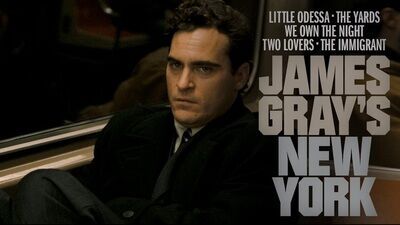Relationships with parents and ancestors is central to your filmmaking as well, and that incompleteness is reflected there, too, in the lack of closure your characters have with their relatives. Those relationships are never resolved, but they end, and they have to deal with that complexity. Revisiting your earlier work at this time in your life, I’m curious if you’ve been reflecting on the role of family in your films.
The funny thing is, I’m really quite sick of myself at this point. I’ve talked too much, and I’d like to have the work speak more than me. I’m nauseated by myself. It sounds ridiculous, but I’m so tired of myself that I haven’t done a lot of these. I’m doing a couple of interviews today, but that’s about it, because I love Criterion, and I love what they do. I want to support them. But I’m very uncomfortable talking about my own films. I love talking about other movies, particularly older films. And I love talking about art in general, about politics and history. But about my own work, it’s very uncomfortable, because I have no distance from it. Some days I wake up, and I think that the work has been okay. And other days, I wake up, usually more than the days where I think they’re okay, and I’m very disappointed in myself. It’s not a pleasant place to be. I can only say that the ambition is this, and whether it reaches that is for other people to decide.
But what we’re talking about, this eternal lack of closure, is part of who we are. Part of our relationships with family, which are the most direct relationships that we have, is defined by this lack of completeness, of wholeness, answers, proper revenge and proper love. Instead, they’re imperfect. And so our art, I think, has an obligation to reflect that imperfection, not to embrace perfection. Because you find beauty and transcendence in the imperfect, not in idealizing it.

“Armageddon Time” is more directly autobiographical than your previous films, and the contradictions you uncover—including those specific to Russian-Jewish immigrants’ standing in ’80s New York, that idea of existing as both the oppressor and the oppressed—are as rich as those present in any film you’ve made. So much is contained in the character of Aaron (Anthony Hopkins), who instructs his grandson to be a “mensch” and stand up to bullies but also to make the most of his privilege and get ahead. I know we’re talking about your earlier work today, but…
It’s fine. It’s all the same. You raise the point about the mensch, in particular, and how it relates to “Armageddon Time.” One of the ideas I was trying to communicate with that film — which I suspect was a difficult haul for some people, or at least uncomfortable as hell — is that, when one contextualizes things by saying, in that case of that film, that it’s about “white guilt,” a part of why I felt that such a criticism was really, profoundly misguided is that it’s a reduction of the idea of that film in its concept of mensch-ness.

